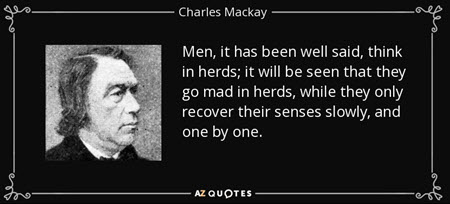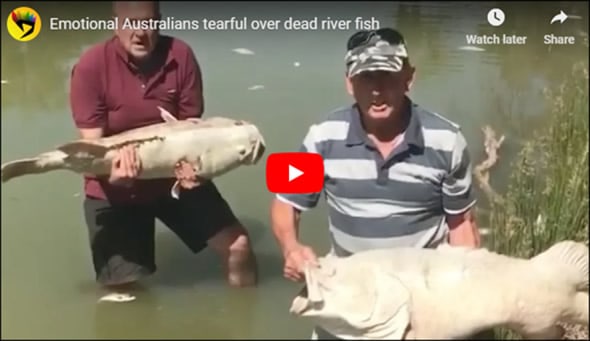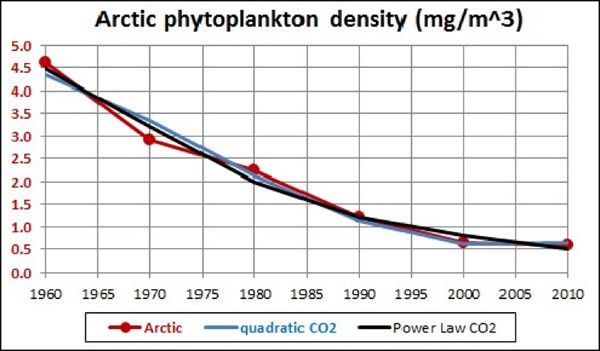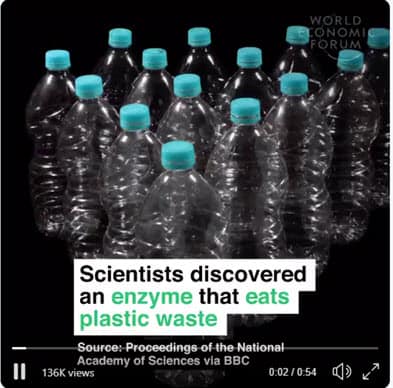Many people are expecting some degree of approaching collapse -- be it economic, environmental and/or societal -- thinking that they’ll recognize the danger signs in time.
As if it will be completely obvious, like a Hollywood blockbuster. Complete with clear warnings from scientists, politicians and the media. And everyone can then get busy either panicking or becoming the plucky heroes.
That's not how collapse works.
Collapse is a process, not an event.
And it's already underway, all around us.
Collapse is already here.
However, unlike Hollywood's vision, the early stages of collapse cause people to cling even tighter to the status quo. Instead of panic in the streets, we simply see more of the same -- as those in power do all they can to remain so, while the majority of the public attempts to ignore the growing problems for as long as it possibly can.
For both the elite and the majority, their entire world view and their personal sense of self depends on things not crumbling all around them, so they remain willfully blind to any evidence to the contrary.
When faced with the predicaments we warn about here at PeakProsperity.com, getting an early start on prudently shifting your own personal situation is of vital strategic and tactical importance. Tens of thousands of our readers already have taken wise steps in their lives to position themselves resiliently.
But most of the majority won't get started until it’s entirely too late to make any difference at all. Which is sad but perhaps unavoidable, given human nature.
If everybody around you is saying “Everything is awesome!”, it can take a long time to determine for yourself that things in fact aren't:
Real collapse happens slowly, and often without any sort of acknowledgement by the so-called political and economic elites until its abrupt terminal end.
The degree of rot within the Soviet Union went undetected until its final implosion, catching pretty much everyone in the West (as well as in the former USSR!) by surprise.
Similarly, one day people woke up and passenger pigeons were extinct. They used to literally darken the skies for hours as they migrated past, numbering in the billions. Nobody planned on their demise and virtually nobody saw it coming. Sure, just as there always are, a few crackpots at the fringes noticed, but they were ignored until it was too late.
Our view is that collapse of our current way of life is happening right now. The signs are all around us. Our invitation is for you to notice them and inquire critically what the ramifications will be -- irrespective of whatever pablum our leaders and media are currently spewing.
While the monetary and financial elites strain to crank out one more day/week/month/year of “market stability”, the ecosystems we depend on for life are vanishing. It's as if the Rapture were happening, but it's the insects, plants and animals ascending to heaven instead of we humans.
Committing Ecocide
Be very skeptical when the cause of each new ecological nightmare is ascribed to “natural causes.”
While it’s entire possible for any one ecological mishap to be due to a natural cycle, it’s weak thinking to assign the same cause to dozens of troubling findings happening all over the globe.
As they say in the military: Once is an accident. Twice is a coincidence. But three times is enemy action.
Right now, Australia is in the middle of the summer season and being absolutely hammered by high heat. Sure it gets hot during an Australian summer, but not like this. The impact has been devastating:
Australia's Facing an Unprecedented Ecological Crisis, But No One's Paying Attention
Jan 9, 2019
It started in December, just before Christmas.
Hundreds of dead perch were discovered floating along the banks of the Darling River – victims of a "dirty, rotten green" algae bloom spreading in the still waters of the small country town of Menindee, Australia.
Things didn't get better. The dead hundreds became dead thousands, as the crisis expanded to claim the lives of 10,000 fish along a 40-kilometre (25-mile) stretch of the river. But the worst was still yet to come.
This week, the environmental disaster has exploded to a horrific new level – what one Twitter user called "Extinction level water degradation" – with reports suggesting up to a million fish have now been killed in a new instance of the toxic algae bloom conditions.
For their part, authorities in the state of New South Wales have only gone as far as confirming "hundreds of thousands" of fish have died in the event – but regardless of the exact toll, it's clear the deadly calamity is an unprecedented ecological disaster in the region's waterways.
"I've never seen two fish kills of this scale so close together in terms of time, especially in the same stretch of river," fisheries manager Iain Ellis from NSW Department of Primary Industries (DPI) explained to ABC News.
The DPI blames ongoing drought conditions for the algae bloom's devastating impact on local bream, cod, and perch species – with a combination of high temperature and chronic low water supply (along with high nutrient concentrations in the water) making for a toxic algal soup.
(Source)
Watching the video above showing grown men crying over the loss of 100-year-old fish is heartbreaking. This fish kill is described as “unprecedented” and as an “extinction level event", meaning it left no survivors over a long stretch of waterway.
We can try to console ourselves that maybe this was just a singular event, a cluster of bad juju and worse waterway management that combined to give us this horror -- but it wasn’t.
It's part of a larger tapestry of heat-induced misery that Australia is facing:
How one heatwave killed 'a third' of a bat species in Australia
Jan 15, 2019
Over two days in November, record-breaking heat in Australia's north wiped out almost one-third of the nation's spectacled flying foxes, according to researchers.
The animals, also known as spectacled fruit bats, were unable to survive in temperatures which exceeded 42C.
"It was totally depressing," one rescuer, David White, told the BBC.
Flying foxes are no more sensitive to extreme heat than some other species, experts say. But because they often gather in urban areas in large numbers, their deaths can be more conspicuous, and easily documented.
"It raises concerns as to the fate of other creatures who have more secretive, secluded lifestyles," Dr Welbergen says.
He sees the bats as the "the canary in the coal mine for climate change".
(Source)
A two-day heatwave last November (2018) was sufficient to kill up to a third of all Australia's known flying foxes, a vulnerable species that was already endangered. As those bats are well-studied and their deaths quite conspicuous to observers, it raises the important question: How many other less-scrutinized species are dying off at the same time?
And the death parade continues:
- More than 90 wild horses die in Australia's heat wave (Jan 24, 2019)
- Australia heatwave: Mass animal deaths and roads melting as temperatures reach record high (Jan 19, 2019)
- Australia's Heatwave Responsible for Deaths of Horses, Camels (Jan 24)
Are these data points severe enough for you to recognize as signs of ongoing collapse?
Last summer was a time of extreme drought and heat for Australia, and this summer looks set to be even worse. This may be the country's 'new normal' for if the situation is due to climate change instead of just an ordinary (if punishing) hot cycle.
If so, these heat waves will likely intensify over time, completely collapsing the existing biological systems across Australia.
Meanwhile, nearby in New Zealand, similar species loss is underway:
'Like losing family': time may be running out for New Zealand's most sacred tree
July 2018
New Zealand’s oldest and most sacred tree stands 60 metres from death, as a fungal disease known as kauri dieback spreads unabated across the country.
Tāne Mahuta (Lord of the Forest) is a giant kauri tree located in the Waipoua forest in the north of the country, and is sacred to the Māori people, who regard it as a living ancestor.
The tree is believed to be around 2,500 years old, has a girth of 13.77m and is more than 50m tall.
Thousands of locals and tourists alike visit the tree every year to pay their respects, and take selfies beside the trunk.
Now, the survival of what is believed to be New Zealand’s oldest living tree is threatened by kauri dieback, with kauri trees a mere 60m from Tāne Mahuta confirmed to be infected.
Kauri dieback causes most infected trees to die, and is threatening to completely wipe out New Zealand’s most treasured native tree species, prized for its beauty, strength and use in boats, carvings and buildings.
“We don’t have any time to do the usual scientific trials anymore, we just have to start responding immediately in any way possible; it is not ideal but we have kind of run out of time,” Black says, adding that although there is no cure for kauri dieback there is a range of measures which could slow its progress.
(Source)
People are rallying to try and save the kauri trees, although it’s unclear exactly how to stop the spread of the new fungal invader or why it's so pathogenic all of a sudden. It could be due to another natural sort of cycle (except the fungus was thought to have been introduced and spread by human activity) or it could be another collapse indicator we need to finally hear and heed.
It turns out that New Zealand is not alone. Giant trees are dying all over the globe.
2,000-year-old baobab trees in Africa are suddenly and rather mysteriously giving up the ghost. These trees survived happily for 2,000 years and now all of a sudden they're dying. Are the deaths of our most ancient trees all across the globe some sort of natural process? Or is there a different culprit we need to recognize?
In Japan they're lamenting record low squid catches. Oh well, maybe it’s just overfishing? Or could it be another message we need to heed?
To all this we can add the numerous scientific articles now decrying the 'insect Apocalypse' unfolding across the northern hemisphere. The Guardian recently issued this warning: “Insect collapse: ‘We are destroying our life support systems’”. Researchers in Puerto Rico's forest preserves recorded a 98% decline in insect mass over 35 years. Does a 98% decline have a natural explanation? Or is something bigger going on?
Meanwhile, the butterfly die-off is unfolding with alarming speed. I rarely see them in the summer anymore, much to my great regret. Seeing one is now as exciting as seeing a meteor streak across the sky, and just as rare:
Monarch butterfly numbers plummet 86 percent in California
Jan 7, 2019
CAMARILLO, Calif. – The number of monarch butterflies turning up at California's overwintering sites has dropped by about 86 percent compared to only a year ago, according to the Xerces Society, which organizes a yearly count of the iconic creatures.
That’s bad news for a species whose numbers have already declined an estimated 97 percent since the 1980s.
Each year, monarchs in the western United States migrate from inland areas to California’s coastline to spend the winter, usually between September and February.
“It’s been the worst year we’ve ever seen,” said Emma Pelton, a conservation biologist with the Xerces Society who helps lead the annual Thanksgiving count. “We already know we’re dealing with a really small population, and now we have a really bad year and all of a sudden, we’re kind of in crisis mode where we have very, very few butterflies left.”
What’s causing the dramatic drop-off is somewhat of a mystery. Experts believe the decline is spurred by a confluence of unfortunate factors, including late rainy-season storms across California last March, the effects of the state’s years long drought and the seemingly relentless onslaught of wildfires that have burned acres upon acres of habitat and at times choked the air with toxic smoke.
(Source)
Note the “explanation” given blames the decline on mostly natural processes: late storms, droughts and wildfires. I believe that's because the article appears in a US paper, so no mention was permitted of neonicotinoid pesticides or glyphosate. Both of these are highly effective decimators of insect life -- but they're highly profitable for Big Ag, so for now, any criticism is not allowed.
Sure a 97% decline since the 1980’s might be due to fires, droughts and rains. But that’s really not very likely. There have always been fires, droughts and rains. Something else has shifted since the 1980’s. And that “thing” is human activity, which has increased its willingness to destroy habitat and spray poisons everywhere in pursuit of cheaper food and easier profits.
The loss of insects, which we observe in the loss of the beautiful and iconic Monarch butterfly, is a gigantic warning flag that we desperately need to heed. If the bottom of our billion-year-old food web disintegrates, you can be certain that the repercussions to humans will be dramatic and terribly difficult to ‘fix.’ In scientific terms, it will be called a “bottom-up trophic cascade”.
In a trophic cascade, the loss of a single layer of the food pyramid crumbles the entire structure. Carefully-tuned food webs a billion years in the making are suddenly destabilized. Life cannot adapt quickly enough, and so entire species are quickly lost. Once enough species die off, the web cannot be rewoven, and life … simply ends.
What exactly would a “trophic cascade” look like in real life? Oh, perhaps something just like this:
Deadly deficiency at the heart of an environmental mystery
Oct 16, 2018
During spring and summer, busy colonies of a duck called the common eider (Somateria mollissima) and other wild birds are usually seen breeding on the rocky coasts around the Baltic Sea. Thousands of eager new parents vie for the best spots to build nests and catch food for their demanding young broods.
But Lennart Balk, an environmental biochemist at Stockholm University, witnessed a dramatically different scene when he visited Swedish coastal colonies during a 5-year period starting in 2004. Many birds couldn’t fly. Others were completely paralyzed. Birds also weren’t eating and had difficulty breathing. Thousands of birds were suffering and dying from this paralytic disease, says Balk. “We went into the bird colonies, and we were shocked. You could see something was really wrong. It was a scary situation for this time of year,” he says.
Based on his past work documenting a similar crisis in several Baltic Sea fish species, Balk suspected that the birds’ disease was caused by a thiamine (vitamin B1) deficiency. Thiamine is required for critical metabolic processes, such as energy production and proper functioning of the nervous system.
This essential micronutrient is produced mainly by plants, including phytoplankton, bacteria, and fungi; people and animals must acquire it through their food.
“We found that thiamine deficiency is much more widespread and severe than previously thought,” Balk says. Given its scope, he suggests that a pervasive thiamine deficiency could be at least partly responsible for global wildlife population declines. Over a 60-year period up to 2010, for example, worldwide seabird populations declined by approximately 70%, and globally, species are being lost 1,000 times faster than the natural rate of extinction (9, 10). “He has seen a thiamine deficiency in several differ phyla now,” says Fitzsimons of Balk. “One wonders what is going on. It’s a larger issue than we first suspected.”
(Source)
This is beyond disturbing. It should have been on the front pages of every newspaper and TV show across the globe. We should be discussing it in urgent, worried tones and devoting a huge amount of money to studying and fixing it. At a minimum, we should stop hauling more tiny fish and krill from the sea in an effort to at least stabilize the food pyramid while we sort things out.
If you recall, we’ve also recently reported on the findings showing that phytoplankton levels are down 50% (these are a prime source for thiamine, by the way). Again, here's a possible “trophic cascade” in progress:
(Source)
Fewer phytoplankton means less thiamine being produced. That means less thiamine is available to pass up the food chain. Next thing you know, there’s a 70% decline in seabird populations.
This is something I’ve noticed directly and commented n during my annual pilgrimages to the northern Maine coast over the past 30 years, where seagulls used to be extremely common and are now practically gone. Seagulls! How does one lose seagulls?
Next thing you know, some other major food chain will be wiped out and we'll get oceans full of jellyfish instead of actual fish. Or perhaps some once-benign mold grows unchecked because the former complex food web holding it in balance has collapsed, suddenly transforming Big Ag's "green revolution" into grayish-brown spore-ridden dust.
To add to the terrifying mix of ecological news has been the sudden and rapid loss of amphibian species all over the world. A possible source for the culprit has been found, if that’s any consolation; though that discovery does not yet identify a solution to this saddening development.
Ground Zero of Amphibian 'Apocalypse' Finally Found
May 10, 2018
MANY OF THE world's amphibians are staring down an existential threat: an ancient skin-eating fungus that can wipe out entire forests' worth of frogs in a flash.
This ecological super-villain, the chytrid fungus Batrachochytrium dendrobatidis, has driven more than 200 amphibian species to extinction or near-extinction—radically rewiring ecosystems all over Earth.
“This is the worst pathogen in the history of the world, as far as we can tell, in terms of its impacts on biodiversity,” says Mat Fisher, an Imperial College London mycologist who studies the fungus.
Now, a global team of 58 researchers has uncovered the creature's origin story. A groundbreaking study published in Science on Thursday reveals where and when the fungus most likely emerged: the Korean peninsula, sometime during the 1950s.
From there, scientists theorize that human activities inadvertently spread it far and wide—leading to amphibian die-offs across the Americas, Africa, Europe, and Australia.
(Source)
Frogs, toads and salamanders were absolutely critical parts of my childhood and I delighted in their presence. I cannot imagine a world without them. But effectively, that’s what we’ve got now with so many on the endangered species list.
This parade of awful ecological news is both endless and worsening. And there is no real prospect for us to fix things in time to avoid substantial ecological pain. None.
After all, we can’t even manage our watersheds properly. And those are dead simple by comparison. Water falls from the sky in (Mostly) predictable volume and you then distribute somewhat less than that total each year. Linear and simple in comparison to trying to unravel the many factors underlying a specie's collapse.
But challenges like this are popping up all over the globe:
Fear And Grieving In Las Vegas: Colorado River Managers Struggle With Water Scarcity
Dec 14th, 2018
On stage in a conference room at Las Vegas's Caesars Palace, Keith Moses said coming to terms with the limits of the Colorado River is like losing a loved one.
"It reminds me of the seven stages of grief," Moses said. "Because I think we've been in denial for a long time."
Moses is vice chairman of the Colorado River Indian Tribes, a group of four tribes near Parker, Arizona. He was speaking at the annual Colorado River Water Users Association meeting.
The denial turned to pain and guilt as it became clear just how big the supply and demand gaps were on the river that delivers water to 40 million people in the southwest.
For the last six months Arizona's water leaders have been experiencing the third stage of grief: anger and bargaining.
Of the seven U.S. states that rely on the Colorado River, Arizona has had the hardest time figuring out how to rein in water use and avoid seeing the river's largest reservoirs — Lakes Mead and Powell — drop to extremely low levels.
Kathryn Sorenson, director of Phoenix's water utility, characterized the process this way: "Interesting. Complicated. Some might say difficult."
One of the loudest voices in the debate has been coming from a small group of farmers in rural Pinal County, Arizona, south of Phoenix.
Under the current rules those farmers could see their Colorado River supplies zeroed out within two years.
The county's biggest grower of cotton and alfalfa, Brian Rhodes, is trying to make sure that doesn't happen. The soil in his fields is powder-like, bursting into tiny brown clouds with each step.
"We're going to have to take large cuts," Rhodes said. "We all understand that."
(Source)
Oh my goodness. If we’re having trouble realizing that wasting precious water from the Colorado River to grow cotton is a bad idea, then there’s just no hope at all that we'll successfully rally to address the loss of ocean phytoplankton.
That’s about the easiest connection of dots that could ever be made. As Sam Kinison, the 1980’s comedian might have yelled – IT’S A DESERT!! YOU’RE TRYING TO GROW WATER-INTENSIVE CROPS IN THE FREAKING DESERT! CAN’T YOU SEE ALL THE SAND AROUND YOU?!? THAT MEANS "DON’T GROW COTTON HERE!!"
A World On The Brink
The bottom line is this: We are destroying the natural world. And that means that we are destroying ourselves.
I know that the mainstream news has relegated this conversation to the back pages (when they covered it at all) and so it's not “front and center” for most people. But it should be.
Everything we hold dear is a subset of the ecosphere. If that goes, so does everything else. Nothing else matters in the slightest if we actively destroy the Earth’s carrying capacity.
At the same time, we're in the grips of an extremely dangerous delusion that has placed money, finance and the economy at the top spot on our temple of daily worship.
Any idea of slowing down or stopping economic growth is “bad for business” and dismissed out of hand as “not practical”, "undesirable" or "unwise". It’s always a bad time to discuss the end of economic growth, apparently.
But as today's young people are increasingly discovering, if "conducting business" is just a lame rationale for failed stewardship of our lands and oceans, then it’s a broken idea. One not worth preserving in its current form.
The parade of terrible ecological breakdowns provided above is there for all willing to see it. Are you willing? Each failing ecosystem is screaming at us in urgent, strident tones that we’ve gone too far in our quest for "more".
We might be able to explain away each failure individually. But taken as a whole? The pattern is clear: We’ve got enemy action at work. These are not random coincidences.
Nature is warning us loudly that it's past time to change our ways. That our "endless growth" model is no longer valid. In fact, it's now becoming an existential threat
The collapse is underway. It’s just not being televised (yet).
Davos As Destiny
And don't expect the cavalry to arrive.
Our leadership is absolutely not up to the task. If the Davos conference currently underway in Switzerland is a sign of anything at all, it’s that we’re doomed.
The world has been taken over by bankers and financiers too smitten by their love of money to notice much else or be of any practical service to the world.
By way of illustrative example, here’s the big techno-feel-good idea unveiled on the second day of the conference. The crowds there loved it:
Yes, folks, this is what the world most desperately needs at this time! /sarc
While I’m sure drone-delivered books is a heartwarming story, it’s completely diversionary and utterly meaningless in the face of collapsing oceanic and terrestrial food webs.
Sadly, this is exactly the sort of inane distraction most admired by the Davos set in large part because it helps them feel a tiny bit better about their ill-gotten wealth. "Look! We're supporting good things!" The ugly truth is that big wealth's main pursuit is to distort political processes and rules to assure they get to keep it and even amass more.
Drones carrying books to Indonesian children provides the same sort of dopamine rush to a Davos attendee as Facebook 'like' gives to a 14-year-old. Temporary, cheap, superficial and ultimately meaningless.
The same is true of their other feel-good theme of the day. “Scientists” have discovered an enzyme that eats plastics:
That’s swell, but you know what would be even better? Not using the bottles in the first place. Which could be accomplished by providing access to safe, potable water as a basic human right and using re-usable containers. Of course, that would offer less chances for private wealth accumulation so instead the Davos crowd is fixated on the profitable solution vs. doing the right thing.
In virtually every instance, the Davos crowd wants to preserve industry and our consumer culture as it is, using technology and gimmicks in attempt to remedy the ills that result. There’s money to be made on both ends of that story.
The only thing that approach lacks is a future. Because it’s not-so-subtly based on continued "growth". Infinite exponential growth. The exact same growth that is killing ancient trees, sea birds, insects, amphibians, and phytoplankton.
Who wants more of that? Insane people.
In other words, don’t hold out any hope that the Davos set representing the so-called “elite” from every prominent nation on earth are going to somehow bravely offer up real insights on our massive predicaments and solutions to our looming problems. They're too consumed with their own egos and busy preening for prominence to notice the danger or care.
As they pointlessly fritter away another expensive gathering, the ecological world is unraveling all around them. The oceans are becoming a barren wasteland. The ancient trees are dying. Heatwaves are melting tar and killing life. The web of life is snapping strand by strand and nobody can predict what happens next.
In other words, if you held out any hope that “they” would somehow rally to the cause you’d best set that completely aside. It's no wonder social anger against tone-deaf and plundering elites is breaking out right now.
From here, there are only two likely paths:
(1) We humans simply cannot self-organize to address these plights and carry on until the bitter end, when something catastrophic happens that collapses our natural support systems.
(2) We see the light, gather our courage, and do what needs to be done. Consumption is widely and steeply curtailed, fossil fuel use is severely restrained, and living standards as measured by the amount of stuff flowing through our daily lives are dropped to sustainable levels.
Either path means enormous changes are coming, probably for you and definitely for your children and grandchildren.
In Part 2: Facing Reality we dive into what developments to expect as our systems continue further along their trophic cascade. Which markers and milestones should we monitor most closely to know when the next breaking point is upon us?
To reiterate: Massive change is now inevitable and in progress.
Collapse has already begun.
This is a companion discussion topic for the original entry at https://peakprosperity.com/collapse-is-already-here/






